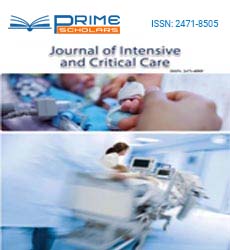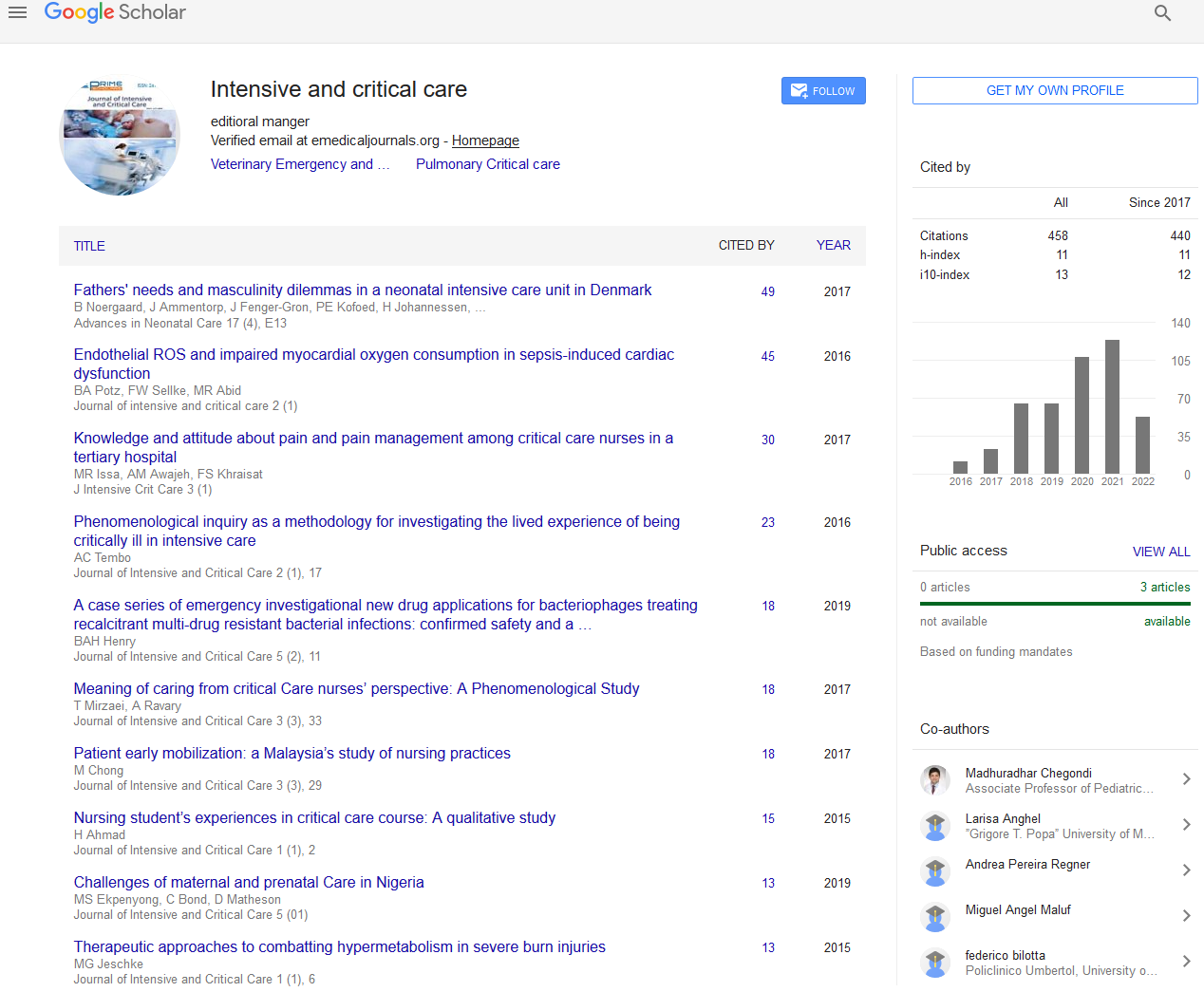Short Communication - (2023) Volume 9, Issue 4
Unmasking the Effects of Myocardial Infarction: Navigating Life after a Heart Attack
Emily Susan*
Department of Endocrinology and Diabetology, Medical University of Graz, Austria
*Correspondence:
Emily Susan,
Department of Endocrinology and Diabetology, Medical University of Graz,
Austria,
Email:
Received: 01-Aug-2023, Manuscript No. IPJICC-23-17429;
Editor assigned: 03-Aug-2023, Pre QC No. IPJICC-23-17429 (PQ);
Reviewed: 17-Aug-2023, QC No. IPJICC-23-17429;
Revised: 22-Aug-2023, Manuscript No. IPJICC-23-17429 (R);
Published:
29-Aug-2023, DOI: 10.35248/2471-8505-9.4.32
Introduction
Myocardial infarction, commonly referred to as a heart attack,
is a catastrophic event that leaves a profound impact on both
the physical and emotional well-being of an individual. While
medical advancements have improved survival rates, the effects
of a heart attack extend far beyond the initial episode.
Understanding the short-term and long-term consequences
of myocardial infarction is crucial for patients, caregivers, and
healthcare providers alike. This article delves into the multifaceted
effects of myocardial infarction, exploring its immediate
aftermath and the ongoing challenges faced by survivors. A
heart attack occurs when blood flow to a part of the heart is
obstructed, leading to the death of heart muscle cells due to
lack of oxygen. The immediate effects of a myocardial infarction
can be severe and life-threatening. Common symptoms
include chest pain or discomfort, shortness of breath, nausea,
lightheadedness, and cold sweats. Swift medical intervention
is essential to restore blood flow and limit heart muscle damage.
Immediate treatments such as thrombolytic therapy, angioplasty,
and stent placement can help alleviate the acute effects
of a heart attack. Following the acute phase, survivors of
myocardial infarction often experience a range of short-term
effects as they begin their journey toward recovery [1,2]. The
heart’s compromised function can lead to reduced endurance
and physical capacity.
Description
Survivors may struggle with fatigue, even during routine activities.
The psychological impact of a heart attack can be substantial.
Many survivors experience anxiety, depression, fear
of future events, and post-traumatic stress disorder. Emotional
support and counseling play a critical role in addressing these
challenges. Survivors may be prescribed a combination of medications
to manage their condition, including blood thinners,
cholesterol-lowering drugs, and medications to control blood
pressure. Adhering to these medication regimens is essential
for preventing future cardiac events. Many survivors undergo
cardiac rehabilitation programs, which consist of supervised
exercise, education, and counseling. These programs help improve
physical fitness, reduce risk factors, and enhance overall
quality of life. While advancements in medical care have improved
outcomes for heart attack survivors, the long-term effects
of myocardial infarction can still significantly impact an
individual’s life. A heart attack can weaken the heart muscle,
leading to heart failure. This condition occurs when the heart’s
pumping ability is compromised, causing symptoms such as
shortness of breath, swelling of the legs, and fatigue [3-5].
Myocardial infarction can disrupt the heart’s electrical signals,
leading to irregular heart rhythms (arrhythmias).
Conclusion
Myocardial infarction is not just a medical event; it’s a life-altering
experience that impacts every facet of an individual’s
existence. The immediate, short-term, and long-term effects of
a heart attack can leave survivors physically and emotionally
challenged. However, with the right medical care, emotional
support, and lifestyle adjustments, individuals can navigate
the complexities of life after a heart attack. Collaborative efforts
between healthcare providers, survivors, caregivers, and
the community at large are essential to empower heart attack
survivors to lead fulfilling lives and reduce the risk of future
cardiac events. As medical research continues to advance, a
deeper understanding of the effects of myocardial infarction
will contribute to improved care and outcomes for those who
have experienced this profound cardiac event.
Acknowledgement
None.
Conflict Of Interest
The authors declare no conflict of interest.
References
- Connor BEL, Cohn BA, Wingard DL, Edelstein SL (1991) Why is diabetes mellitus a stronger risk factor for fatal ischemic heart disease in women than in men? The rancho bernardo study. JAMA 265(5): 627-631.
[Crossref] [Google Scholar]
- Du YY, Zhou SH, Zhou T, Su H, Pan HW, et al. (2008) Immuno-inflammatory regulation effect of mesenchymal stem cell transplantation in a rat model of myocardial infarction. Cytotherapy 10(5): 469-478.
[Crossref] [Google Scholar]
- Eguchi S, Takefuji M, Sakaguchi T, Ishihama S, Mori Y, et al. (2019) Cardiomyocytes capture stem cell-derived, anti-apoptotic microrna-214 via clathrin-mediated endocytosis in acute myocardial infarction. J Biol Chem 294(31): 11665-11674.
[Crossref] [Google Scholar[PubMed]
- Golpanian S, El-Khorazaty J, Mendizabal A, DiFede DL, Suncion VY, et al. (2015) Effect of aging on human mesenchymal stem cell therapy in ischemic cardiomyopathy patient. J Am Coll Cardiol 65(2): 125-132.
[Crossref] [Google Scholar]
- Hare JM, Traverse JH, Henry TD, Dib N, Strumpf RK, et al. (2009) A randomized, double-blind, placebo-controlled, dose-escalation study of intravenous adult human mesenchymal stem cells (prochymal) after acute myocardial infarction. J Am Coll Cardiol 54(24): 2277-2286.
[Crossref] [Google Scholar]
Citation: Susan E (2023) Unmasking the Effects of Myocardial Infarction: Navigating Life after a Heart Attack. J Intensive Crit Care. 9:32.
Copyright: © 2023 Susan E. This is an open-access article distributed under the terms of the Creative Commons Attribution License, which permits unrestricted use, distribution, and reproduction in any medium, provided the original author and source are credited.

